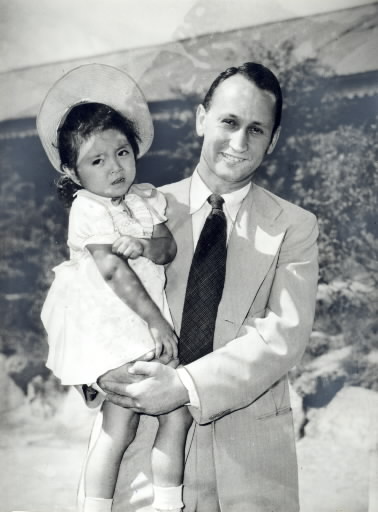The "Moral Adoption" of Hiroshima’s A-bomb Orphans, Part I [1]
Feb. 1, 2009
Letters exchanged between American citizens and Japanese children: Children respond with delight and expectation
by Akira Tashiro and Masami Nishimoto, Staff Reporters
More than 500 letters written in Japanese and English are stored at the Hiroshima Municipal Archives. These letters, now yellowed with age, are the true records of a campaign for the “moral adoption” of Hiroshima’s A-bomb orphans. This campaign was promoted by American citizens with the aim of providing support to children who lost their families as a result of the atomic bombing. The letters linked “moral parents” in the United States with children across the sea in the Hiroshima War Orphans Foster Home.
In an attempt to honor the campaign for moral adoption of the A-bomb orphans, which seemed to have been relegated to a historical footnote, the Chugoku Shimbun studied the old letters to trace the relationships of these American citizens and Japanese children, from their first contact to the children’s maturity.
“My husband and I live in Vermont. We have just had a letter from Mr. Norman Cousins telling us that you have been chosen for us as one of those youngsters under the care of Mrs. Yamashita. We have displayed your photo in our living room.” [By a housewife, on February 19, 1950]
Mr. Cousins was the person who originally proposed the campaign for moral adoption and, in response to his call, by the end of October 1949 some 150 people in the United States had expressed their willingness to help as moral parents. The Hiroshima War Orphans Foster Home sent them profiles and photos of 71 orphans, 90 percent of all the orphans living there. Mr. Cousins served as an intermediary between the “parents” and their “children.” Letters from the Americans, whose nation had dropped the atomic bomb which killed the children’s real parents, began to arrive as early as February 1951. The contents of the letters were frank, a feature of the American people, and sought to offer support to the children.
“With the letter was your picture, which we have been showing proudly to our friends. What sports do you play? How much English can you read? By American standards we are not wealthy at all but it is most likely that we can send you what you require.” [By the owner of a photo shop, on March 19, 1950]
The letter above was written by a moral parent in California to a 13-year-old boy. A young mother in Tennessee wrote to a 15-year-old girl:
“Hello! Here we are, your ‘new’ parents. I’m 25 years old and my husband is 27 years old. He is an architect. I don’t know much about Japan. I am very anxious to hear from you--write soon, please!” [By a housewife, in April 1950]
These were the first letters that reached the children from overseas. When they read the Japanese translation of these letters, what were the children’s initial impressions of their American “parents”? The faltering sentences in their replies were filled with delight and expectation. A 14-year-old girl wrote:
“I knew from your letter that I now have an older brother and sister. I want to know how they look. So, please send me their photos quickly.” [By a second-year junior high school student, in 1950]
A 13-year-old girl and an 8-year-old boy wrote to their moral parents in Minnesota and California, saying respectively:
“Dear my father and mother, I’m so happy to have received your letter. I’ll study English hard at school and do my best to write a letter in English as soon as possible. Please write to me often.” [By a second-year junior high school student, on March 28, 1950]
“I’m going to study hard and be a great man. I’m looking forward to going to America.” [By a second grader in elementary school, in 1950]
In the tragedy wrought by the atomic bombing, new ties were created between American adults and Japanese children. These first letters reflected the joy they felt, in spite of differences in language and nationality.
Keywords
Norman Cousins
Mr. Cousins graduated from Teachers College, Columbia University. In 1942, he became the editor-in-chief of the Saturday Review of Literature. In August 1945, he warned of the peril of the nuclear age in the Saturday Review of Literature and called for a world government. He is 73 years old and professor of Medical Humanities for the School of Medicine at the University of California. [This article was first published in 1988 and Norman Cousins has since died in 1990.]
The Hiroshima War Orphans Foster Home
In December 1945, Gishin Yamashita and his wife, Teiko, opened the Hiroshima War Orphans Foster Home to provide foster care for A-bomb orphans. In 1953, the City of Hiroshima took over the facility and it became the Hiroshima Municipal War Orphans Foster Home. In 1960, the name was changed again to the Hiroshima Municipal Children’s Home. In 1973, it became the Hiroshima Municipal Minaga Charity Home.
(Originally published on July 13, 1988)








